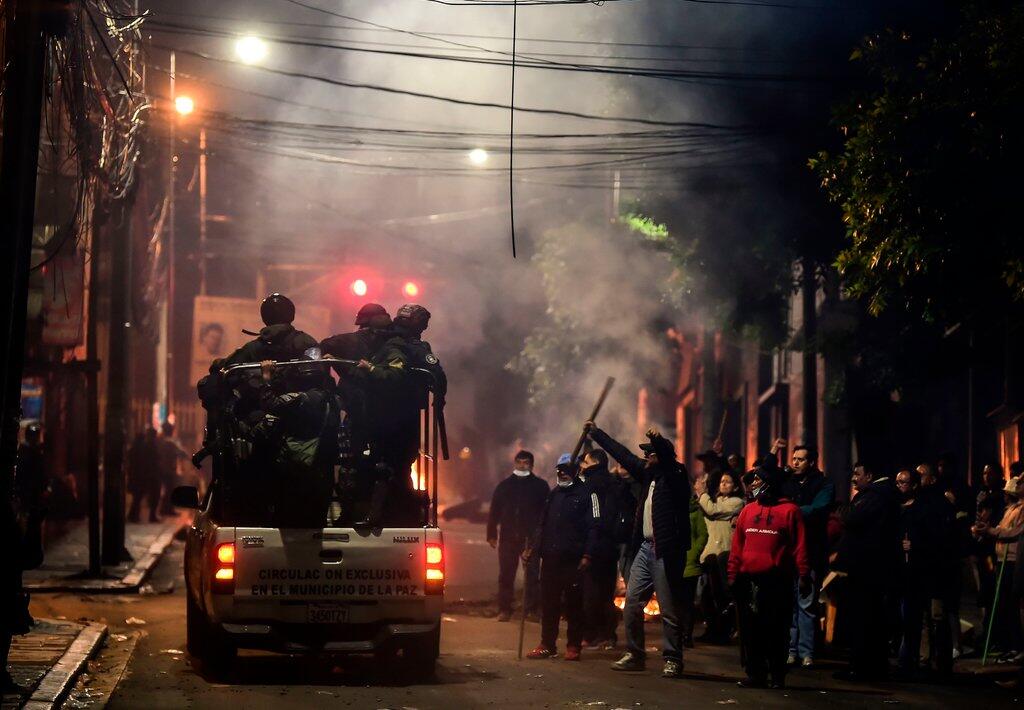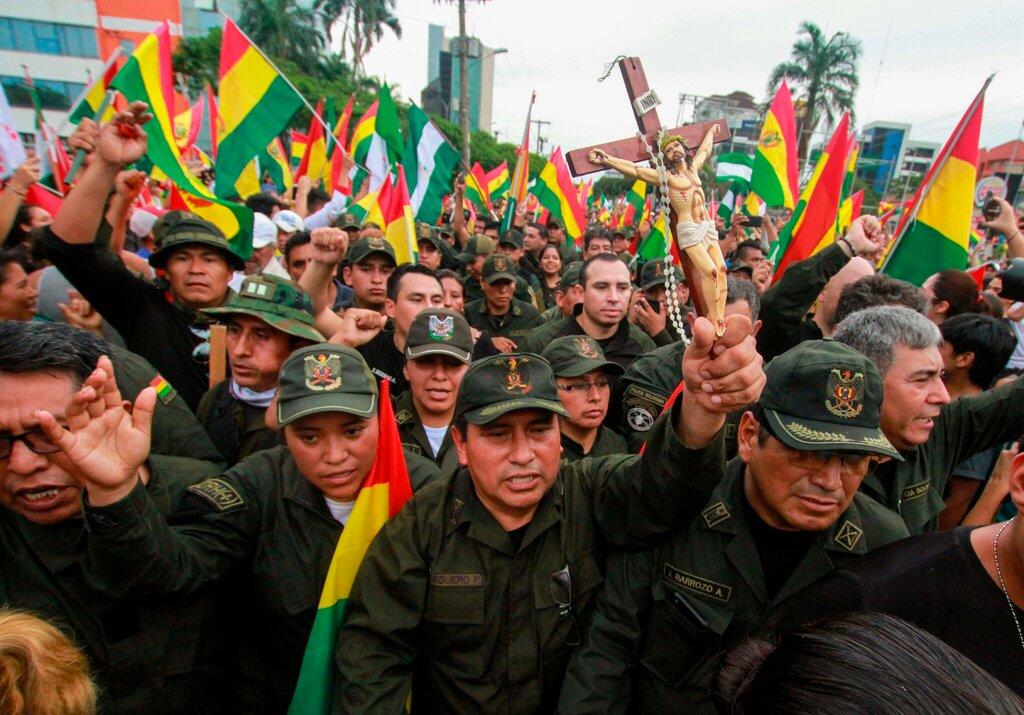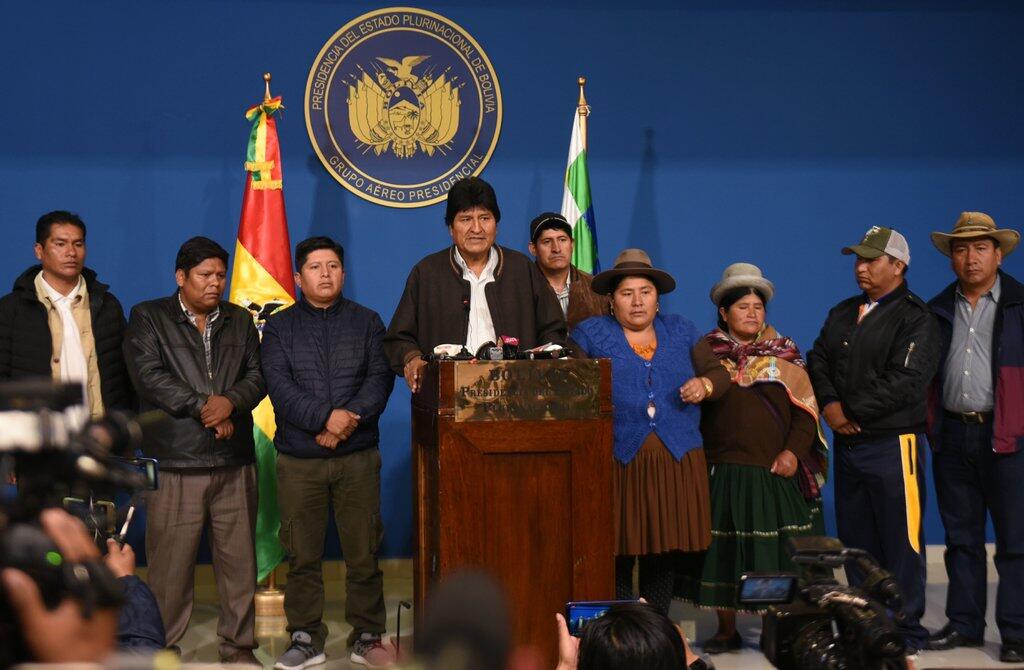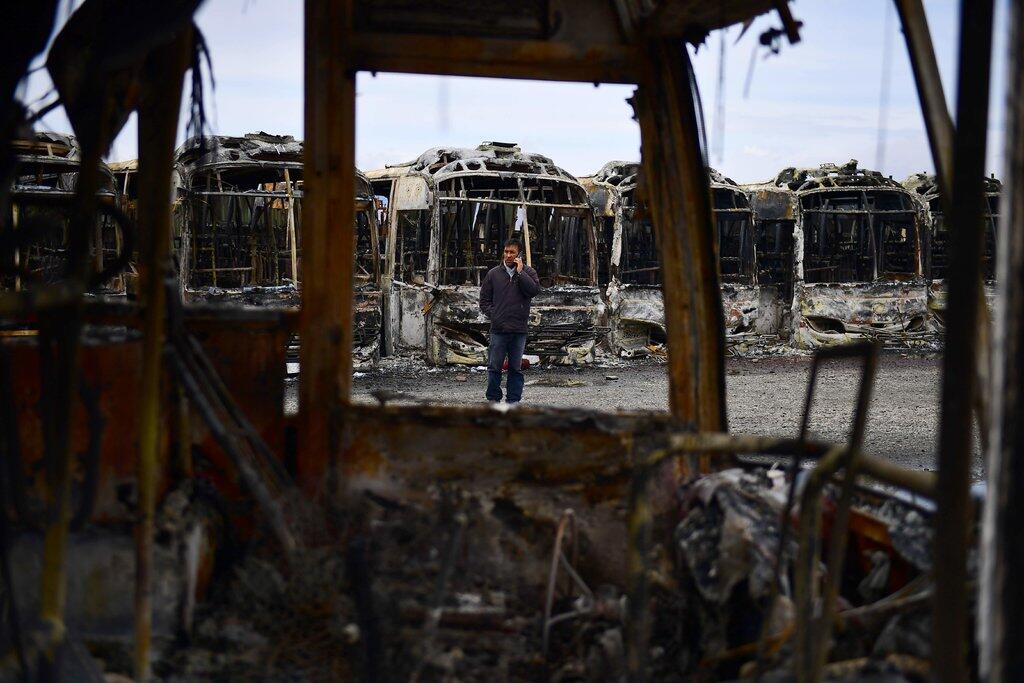En los medios

13/11/19
La crisis boliviana demuestra la borrosa línea entre golpe y levantamiento
Rut Diamint, profesora del Dpto. de Ciencia Política y Estudios Internacionales, fue consultada por The New York Times sobre la crisis política en Bolivia. Subrayó la dificultad de definirla como un "golpe de Estado", y sostuvo que es un "revés para la democracia latinoamericana", así como un precedente para que "otros países definan un orden político con el apoyo de las fuerzas armadas".
President Evo Morales’s resignation has provoked international debate about how to characterize the turmoil in Bolivia: Is it an uprising or a coup? Some highlight a narrative of popular revolt against a president drifting toward authoritarianism. Others underscore a brazen military intervention. Though much remains unknown, both sides have much evidence to point to.
But the coexistence of the two interpretations hints at an important truth, scholars say: The line between coups and revolts can be blurry, even nonexistent. Often, they are one and the same: mass public uprisings alongside military defections that compel the resignation or removal of a country’s leader.

The police patrolling the streets of La Paz, Bolivia, on Monday. Credit...Ronaldo Schemidt/Agence France-Presse — Getty Images
But the overlapping terms often carry moral connotations that could not be more divergent: Coups, in today’s understanding, are to be condemned; revolts are to be championed.
“People who get hung up on whether or not something is a coup or a revolution are missing the point,” said Naunihal Singh, a leading scholar of power transitions and coups. “The question is what happens next.”
That has opened space for a kind of linguistic warfare, in which a political takeover can be portrayed as legitimate by labeling it a revolt, or illegitimate by terming it a coup.
The narrative-building “has consequences” for what kind of government comes next, Mr. Singh said. Transitions like Bolivia’s tend to be fluid and unpredictable. The perception of legitimacy, or a lack thereof, can be decisive.
But today’s world rarely fits the black-and-white narratives that emerged from the Cold War and that still shape expectations that coups and revolts are morality tales with clear heroes and villains.
Bolivia’s crisis, where the stakes of using the right label seem unusually high, also exemplifies why scholars consider the old binaries to be outdated, misleading, even harmful.
‘Schrödinger’s Coup’
Popular perceptions of coups, cemented in the Cold War era, still envision tanks on the streets and generals announcing a takeover.
Revolutions, likewise, are seen as stirring, even romantic, with the people uniting to demand change with one voice, until the leader has no choice but to resign in disgrace.
That created global expectations that any leader’s removal could be slotted into one of those two archetypes, with the terms coup and revolt used to distinguish the legitimate transitions of power from the illegitimate.
But the world has changed. Most military governments have transitioned to democracy. Global norms, once tolerant of coups, now treat them as taboo. Yet, at a time of rising global populism and authoritarianism, elected leaders feel increasingly secure in testing the boundaries of their powers. As a result, coups and revolts have blurred.
Today, coups often come after mass uprisings calling for change, with generals describing their interventions as temporary measures to restore democracy. And few, if any, popular uprisings succeed without military support, if only in the form of generals refusing to come to the government’s aid.

Police officers and protesters in Santa Cruz, Bolivia, celebrated the resignation of President Evo Morales on Sunday. Credit...Daniel Walker/Agence France-Presse — Getty Images
The political scientist Jay Ulfelder has referred to that as a “Schrödinger’s coup,” after the Austrian physicist, Erwin Schrödinger, writing that such cases “exist in a perpetual state of ambiguity, simultaneously coup and not-coup” with no hope of forcing the events into a “single, clear” category.
Attempts to impose a label often turn on unknowns and unknowables. When generals announce that the president should step down, are they threatening force or merely signaling that they will not disperse protesters? Does the distinction even matter?
Bolivia may yet find itself more firmly planted in one category or the other, either because of new developments or the emergence of new information. But, so far, what is known helps to illustrate how modern uprisings can defy the urge to find a neat category.
Seemingly, the events in Bolivia fit the popular conception of a street revolution: Citizens filled the streets to demand the resignation of a leader who refused to respect the limits on his power, eventually recruiting powerful institutions from the left and right to make that come about. The government remains in the hands of elected civilians, who have promised new elections, and Mr. Morales remains free.
It also seemingly matched the popular conception of a coup, with the military calling on the president to step down and, sure enough, with that happening. Mr. Morales himself called his removal a coup. While he has since softened his language, he has also accepted asylum in Mexico.
In one conception, the people heroically saved democracy; in the other, a handful of elites cravenly betrayed it. Both cite the same set of facts.
Venezuela’s protests this year offered a similarly blurry narrative, with mass rallies expressing outrage at the government’s brazen power grabs and championed by opposition leaders who argued that a military intervention was the only remaining avenue for forcing change.
As distinctions become cloudy, Mr. Singh said, partisans invent ever-more-intricate definitions of revolution or coup to fit complex events into black-and-white narratives.
He cited arguments dismissing Bolivia’s uprising as illegitimate because protesters had used violence — even though many revolutions are violent — or because many were right-wing.
Others have pointed to violence by Mr. Morales’s supporters or abuses of power by Mr. Morales as proof that any military role was necessary and so does not constitute a coup.
Those arguments, Mr. Singh said, have little bearing on whether Bolivia’s events qualify as a coup, a popular uprising or both. Rather, they are moral appeals to see one side as good and the other as bad.
“People are cooking the books when they have that conversation,” he said.
Gray Areas
In Latin America during the Cold War era, military interventions into politics tended to expel elected, left-wing leaders and impose right-wing dictatorships.
In the decades since, however, two things have changed. Elected leaders on the left and right have grown more willing to defy term limits and sidestep checks on their authority. And militaries have come to see themselves as political arbiters of last resort, rather than partisan actors or potential rulers.
In Ecuador, for instance, the military intervened on behalf of indigenous protests against the right-wing president in 2000, forcing his removal, and again in support of its center-left president this year.
To political scientists, this looks like a structural problem. Strong presidents, strong militaries, polarized societies and weak institutions invite cases like Bolivia’s, with disputes increasingly resolved outside of the constitutional order.
But the Cold War-era language of coups and revolutions demands that such cases fit into clear narratives. Latin American crises tend to play out along the left-right divides common across the Western Hemisphere, including in the United States, giving an added incentive to identify heroes and villains.
And the messiness inherent in Latin America’s democratic order, with leaders likely to accrue extra-constitutional power and to be removed by extra-constitutional methods, means that both sides will see plenty of evidence for framing the overthrowing of a leader as democracy’s restoration or as its subversion.
Bolivia, again, is a case in point. Scholars of the country argue that both Mr. Morales and the military are on the wrong side of democracy.

Mr. Morales called his removal a coup. While he has since softened his language, he has also accepted asylum in Mexico. Credit...Enzo De Luca/Bolivian Presidency, via Agence France-Presse — Getty Images
Santiago Anria of Dickinson College, in Pennsylvania, and Jennifer Cyr of the University of Arizona wrote in the Washington Post that Mr. Morales’s “attempt to stay in power revealed his ‘autocratic temptations’: a desire to speak and act on behalf of the entire ‘people’ and to do so forever.”
But they argued that he now “barely respects constitutional checks and balances on presidential authority.”
Rut Diamint, a political scientist at Torcuato Di Tella University in Argentina, agreed with the criticisms of Mr. Morales but added, “None of that justifies a coup d’état.”She called it “a setback for democracy in Latin America” and a precedent for “other countries to define a political order with the support of the armed forces.”
Stuck in the middle of these powerful actors are actual Bolivians, told that they must pick one to defend democracy from the other.
Litigating Legitimacy
Debates over what to call Bolivia’s upheaval might force complicated events into an ideologically appealing narrative that does not quite fit, but they still matter — potentially a great deal.
Perceptions of whether or not Mr. Morales’s removal was legitimate, in Bolivia and abroad, could play a significant role in who is able to take power next, their ability to govern and what sort of government they form.

Burnt buses at a parking lot in La Paz. Credit...Ronaldo Schemidt/Agence France-Presse — Getty Images
“That’s part of the importance of these appeals — is it a coup or is it a revolution? — because it will set up what happens in the next week,” Mr. Singh said, referring to Mr. Morales’s challenges to the standing of any opposition-led government.
Experts on Bolivia and on coups joined forces on Monday to challenge the black-and-white characterizations, urging pundits and social media personalities to see the shades of gray.
Within a few hours, some had already thrown up their hands in defeat. That included Mr. Anria, the Bolivia expert, who wrote on Twitter, “Binaries don’t help us much, and yet they are so pervasive!”
